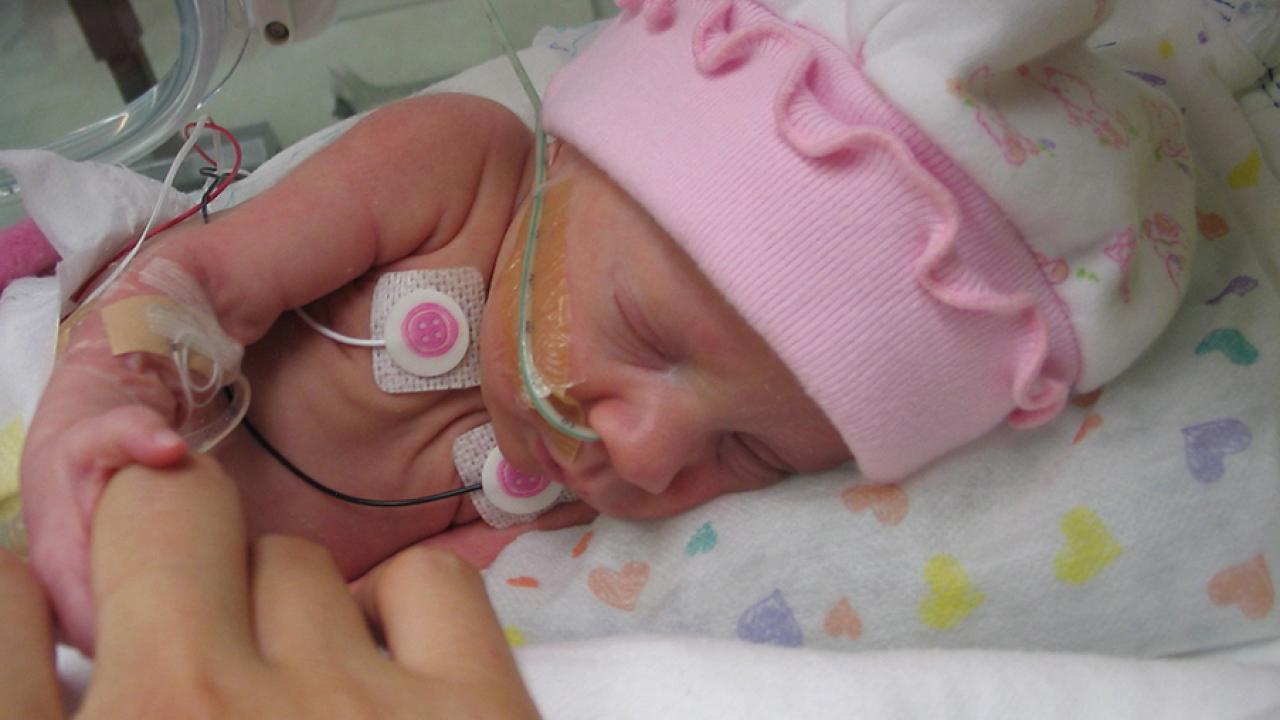
Understanding Pre-term Labor for Diagnostics and Therapeutics
Research conducted at the CNPRC on chorioamnionitis-induced preterm labor in women has been recommended by Faculty of 1000, in recognition of the research’s high impact in its field. Faculty of 1000 is a collaboration of over 5,000 world-wide faculty experts who identify important articles in biology and medical research publications. Articles that are selected by Faculty of 1000 are rated and highlighted for their significance. The recognized publication is led by a team of investigators from Cincinnati Children’s Hospital including Suhas Kallapur MD, Alan Jobe, MD and Claire Chougnet PhD, all of whom conducted their study at the CNPRC in collaboration with Associate Director of Research Lisa Miller, PhD. Chorioamnionitis is a bacterial infection of the placenta and fetal membranes that is frequently associated with preterm labor in women. This inflammatory condition is poorly defined and controversy still surrounds its mechanism. For instance, do lower genital organisms ascend into the upper genital tract causing a diffuse, chronic deciduitis (a type of long-lasting inflammation in pregnancy that affects the endometrial stromal tissue) which then invades the amniotic cavity? Or, do lower genital organisms initially disseminate into the amniotic cavity from a focal and not generalized inflammation, resulting in signaling to the uterine lining from the amniotic cavity? This study by Drs. Kallapur, Jobe and Chougnet may provide some clues to answer these questions. The research team initiated their study with the hypothesis that neutrophils (primary white blood cells that respond to a bacterial infection) recruited to the decidua would be the major producers of cytokines, a category of proteins that are important in cell signaling and are especially important in the immune system. Due to their pro-inflammatory action, cytokines tend to make a disease worse by producing fever, inflammation, and tissue destruction. In previous studies that were also conducted at the CNPRC, the authors showed that fetal exposure to pro-inflammatory cytokines via the amnionic cavity during the third trimester of pregnancy in rhesus macaques resulted in chorioamnionitis and fetal inflammation characterized by a skewed distribution between T-regulatory and interleukin-17 positive T lymphocytes in fetal lymphoid tissue. Following this line of inquiry, the inference from the current study is that decidua neutrophils act as amplifiers of the initial inflammation that is initially triggered by as yet unidentified cells, but may also act as regulators to dampen the inflammation. The results are significant because neutrophil influx is not a prominent feature of mouse models of inflammation induced preterm labor, but humans and macaques have a significant chorio-decidua neutrophil influx as a prominent feature of chorioamnionitis. These results help to understand the contribution of neutrophils to the pathogenesis of chorioamnionitis-induced preterm labor, and reinforce the value of using nonhuman primates as a relevant model in developing diagnostics and designing therapeutic strategies for human preterm labor. Presicce P, Senthamaraikannan P, Alvarez M, Rueda CM, Cappelletti M, Miller LA, Jobe AH, Chougnet CA, Kallapur SG. Chorioamnionitis-induce Neutrophil Recruitment and Activation in Decidua with Intra-Amniotic IL-1beta in the Preterm Rhesus Macaque. Biol Reprod. 2015 Feb;92(2):56. doi: 10.1095/biolreprod.114.124420.
